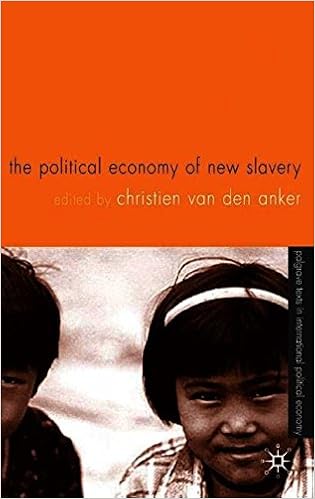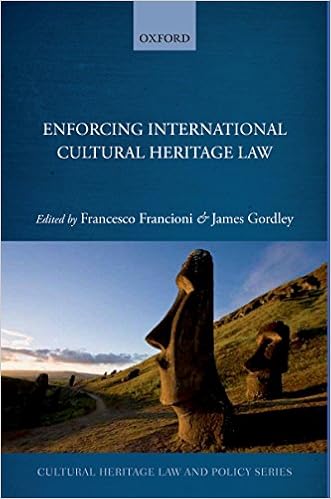
By Christien van den Anker
This booklet examines the position of globalization and native components within the bring up of latest slavery and attainable methods ahead in laws, policy-making, NGO campaigns and examine. particular proposals for development of foreign and nationwide legislations in addition to sufferer help measures are mentioned and views on monetary improvement and social switch are evaluated for his or her use in battling slavery. Reparations for slavery some time past are analyzed as a potential reduction in elevating wisdom and elevated strain on govt to take complete accountability for finishing slavery.
Read Online or Download The Political Economy of New Slavery (Palgrave Texts in International Political Economy) PDF
Best human rights books
Read e-book online Political Violence and the International Community: PDF
Are civil conflicts and coups d'etat issues of overseas hindrance, or questions of nationwide curiosity merely? How can the more and more universal perform of condemnation and intervention by means of the United international locations and person States into occasions of maximum political violence be understood? Will civil clash someday be thought of unlawful below overseas legislation, within the related means as foreign warfare?
The Future of Human Rights Impact Assessments of Trade by Simon Walker PDF
In an age of globalization, loose alternate can be synonymous with prosperity for all. but too frequently, small farmers, indigenous peoples, individuals with HIV, and others are omitted of the image. This publication proposes a brand new method to make loose exchange paintings for everybody. It examines how alternate pacts can profit humans, yet may also threaten their simple human rights to entry nutrients, medicinal drugs, and schooling, or to guard their cultural background.
Enforcing International Cultural Heritage Law by Francesco Francioni, James Gordley PDF
The belief of cultural history as an 'international public reliable' might be traced again to the Preamble of the 1954 Hague conference for the security of Cultural estate within the occasion of Armed clash, in accordance with which "damage to cultural estate belonging to any humans whatever skill harm to the cultural history of all mankind".
During this daring e-book, A. Naomi Paik grapples with the heritage of U. S. criminal camps that experience restrained humans open air the limits of criminal and civil rights. faraway from the social and political groups that might warrantly primary felony protections, those detainees are successfully rightless, stripped of definitely the right even to have rights.
- The Human Rights Obligations of the World Bank and the International Monetary Fund
- Ethical Reasoning in International Affairs: Arguments from the Middle Ground
- Housing and Property Restitution Rights of Refugees and Displaced Persons: Laws, Cases, and Materials
- Human Rights in Chinese Foreign Relations: Defining and Defending National Interests
- International Labour Law Reports, Volume 25 (v. 25)
- Clean Clothes: A Global Movement to End Sweatshops
Additional info for The Political Economy of New Slavery (Palgrave Texts in International Political Economy)
Example text
These more pragmatic approaches are responses to the recent awareness of the practical barriers to eliminating slavery. For example, in the case of child labour, it has been shown that consumer boycotts or outlawing products made by children can lead to a worse existence for the child in question, with the child forced to earn money by alternative means, probably in prostitution or the drugs trade. This was the case in Bangladesh, where it was observed that attempts to bar children from working in the manufacturing industry led to some of them being pushed into prostitution (Bachman, 1995, p.
Global redistribution rather than development aid will provide structural change, although eventually the capitalist system itself needs to end in order for structural change to have the effect of ending slavery and creating meaningful work for everyone. The fifth principle, of providing alternative livelihoods, requires strategies to assist people who have been enslaved or who are potential victims of slavery, to develop livelihoods that safeguard them against being enslaved (again). This would include programmes to develop alternative means of existence for freed bonded labourers and for children who are doing the worst forms of child labour.
Usually, theories of justice, whether concerned with domestic arrangements or with the global context, propose answers to the question: what does justice require? However, in the context of thinking about contemporary slavery, the answer to this question is clear and widely shared already. This chapter is therefore concerned with the lack of implementation of the specific international norm of freedom from slavery and not with its justification in theories of justice. However, principles of justice and a cosmopolitan perspective of justice, including responsibilities towards people outside one’s national borders are used to propose effective and just remedies against contemporary slavery.



